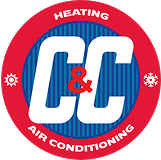Everything You Need to Know About HVAC Systems
If you’re a homeowner or business owner, you know how important it is to have an efficient and reliable HVAC system. But what exactly is an HVAC system, and how does it work? Let’s explore the ins and outs of this crucial piece of equipment.
What Is an HVAC System?
HVAC stands for heating, ventilation, and air conditioning. An HVAC system is responsible for providing the optimal indoor climate within a building or house. It does this by controlling the temperature, humidity levels, air flow, purification, ventilation flow rates, and other variables that affect the environment inside of a property.
How Does an HVAC System Work?
An HVAC system typically consists of two main parts: an indoor component (air handler) and an outdoor component (condenser unit). The air handler regulates the temperature inside the building or home by circulating either warm or cool air through its ducts. The condenser unit converts refrigerant from liquid to gas form when cooling indoors and back again when heating indoors. It also helps to reduce humidity levels during hot summer months as well as expel contaminated air from indoors while bringing fresh outside air inside during cold winter months.
Thermostat
The most important component of any HVAC system is its thermostat. This device controls the operation of both components in order to maintain a comfortable indoor climate at all times. When temperatures rise above the desired setting on your thermostat, your condenser unit will turn on to cool down your home or business by cycling refrigerant through its evaporator coil until temperatures return to normal levels once again. Conversely, if temperatures drop below your desired setting on your thermostat, then your furnace will kick on to heat up your building until temperatures reach equilibrium once again.
Furnace and Blower Motor
The furnace is responsible for heating up the air, while the blower motor is responsible for circulating it throughout the house. Furnaces may be powered by natural gas, electricity, or oil. They draw in cold air from outside and heat it up using fuel or electricity before sending it through the ductwork and into your residence. The blower motor then takes over, pushing that heated air through the ducts and into every room in your house.
Heat Exchanger
This component is responsible for extracting heat from the furnace’s combustion chamber and transferring it to the air passing through the ductwork. Heat exchangers are typically made of metal tubing with fins that allow them to carry out this process more efficiently.
Evaporator Coil
Located inside an indoor unit, an evaporator coil helps cool down hot air as it passes through it by taking advantage of a process called evaporation. It does this by bringing refrigerant lines into contact with warm air, which causes water droplets to form on their surface. The droplets then absorb heat from the warm air around them in order to evaporate into steam. This process has a cooling effect on the surrounding air, which is then sent back into your home via ductwork for distribution throughout all of its rooms.
Refrigerant Lines
Refrigerant lines are what make an HVAC system unique because they provide cooling as well as heating capabilities. These lines are responsible for absorbing heat from the inside of your home in order to cool down its temperature. They also carry away excess heat produced by other components like furnaces or evaporator coils in order to keep them from overheating themselves.
Ductwork
Ducts are responsible for transporting heated or cooled air throughout your house wherever needed via its many rooms and corners. Ducts come in various sizes depending on how much airflow you require at any given time. Generally speaking, larger homes tend to require larger ducts than smaller ones due to their increased area size and, thus greater need for ventilation, heating, and cooling capacity overall.
Return and Supply Registers
These components are responsible for regulating airflow both within each individual room as well as throughout entire houses. By controlling where exactly heated/cooled air goes, return and supply registers make sure that each area gets just enough airflow without overwhelming its occupants with too much of either type at any given moment. Additionally, these also help conserve energy by preventing unnecessary wastage when not needed, saving you money in both short-term costs as well as long-term bills!
Benefits of HVAC System
Not only will an HVAC system keep your home at a comfortable temperature throughout the year, but it can also improve air quality and reduce energy costs. Let’s take a look at some of the benefits that come with owning an HVAC system.
Improved Air Quality
An HVAC system is designed to improve air quality by filtering out dust, pollen, and other airborne particles from your home environment. This helps reduce allergies and other respiratory issues and makes sure everyone in your house is breathing clean air all year round. The filters on your HVAC system need to be changed regularly so they continue to work effectively.
Better Comfort Level
An HVAC system provides consistent temperatures throughout your entire house. That means no more struggling with window units or space heaters during hot summer days or cold winter nights! An HVAC system will keep your entire home at the same temperature so that you can relax in comfort all year. Plus, many systems are equipped with programmable thermostats, which allow you to adjust temperatures according to your schedule or preferences.
HVAC Maintenance Tips
Read on to learn some simple yet effective maintenance tips that will help extend the life of your HVAC system and ensure that it’s operating efficiently.
Check the Air Filters Regularly
Air filters are an important part of any HVAC system. They help remove dust, dirt, and other airborne particles from your home’s air. It’s important to have your air filters checked regularly by a professional — at least once a month — and replace them when they become dirty or clogged. Doing so will not only improve air quality but also increase the efficiency of your system since it won’t have to work as hard to push air through a clogged filter.
Schedule Professional Maintenance
It’s always best to have a professional check out your HVAC system at least once a year. A certified technician will be able to identify any potential problems before they become major issues, saving you time and money in the long run. They can also provide useful advice on how to maintain your system properly so that it lasts longer and runs more efficiently.
Keep Vents Unobstructed
The vents throughout your residence play an important role in dispersing heated or cooled air throughout living spaces efficiently. Make sure none of the vents is blocked by furniture or drapes; otherwise, this could restrict airflow and cause the system to work harder than necessary, resulting in higher utility bills. Additionally, make sure outdoor units are free from debris such as leaves or dirt, which can hinder performance as well.
Get in Touch With Professionals Today!
If you’re looking for dependable, reliable heating, cooling, and indoor air quality services in the greater Detroit area, look no further than C & C Heating and Air Conditioning! We offer 24/7 emergency repair services so that you can always count on us when you need us most. On top of that, our duct cleaning services will ensure the indoor air quality of your home or business is up to the highest standards.
Call C & C Heating and Air Conditioning today and learn more about our services.





